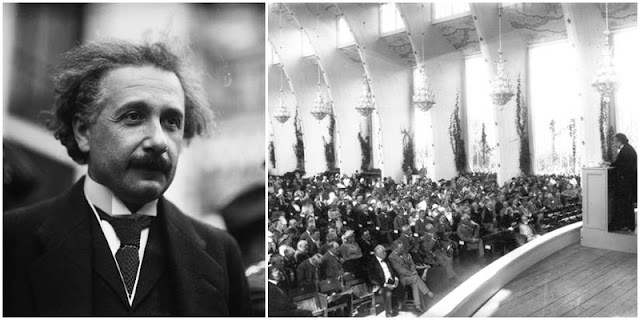biography of albert einstein.
1:Albert einstein Childhood and Early Education
Albert Einstein was born on March 14, 1879, in Ulm, Germany. His family was Jewish, and his father ran an electrochemical factory. As a child, Einstein was fascinated by science and mathematics, and he excelled in these subjects in school. He also taught himself to play the violin.2: Albert Einstein University and Early Career
3: Albert Einstein Special Theory of Relativity
In 1905, Einstein published four papers that revolutionized the field of physics. One of these papers introduced the concept of special relativity, which described how time and space are relative to the observer. This theory also introduced the famous equation E=mc², which describes the relationship between mass and energy.
4: Albert Einstein General Theory of Relativity
In 1915, Einstein published his general theory of relativity, which described gravity as a curvature of spacetime. This theory was groundbreaking, and it has since become a cornerstone of modern physics.
5: Albert Einstein Nobel Prize and Later Career
In 1921, Einstein was awarded the Nobel Prize in Physics for his work on theoretical physics. He continued to work on physics throughout his life, but he also became involved in political activism and humanitarian causes. In 1933, he left Germany and moved to the United States, where he worked at the Institute for Advanced Study in Princeton, New Jersey.
6: Albert Einstein Legacy
Albert Einstein is widely regarded as one of the most brilliant and influential scientists of the 20th century. His theories on relativity and quantum mechanics transformed our understanding of the universe, and his work continues to inspire new research and discoveries in physics today. Einstein's legacy also includes his commitment to pacifism and social justice, which have inspired generations of activists and humanitarians.
7: Albert Einstein Personal Life and Relationships
Einstein was married twice, first to Mileva Maric, a fellow physics student, and then to Elsa Lowenthal. He had three children, one with Mileva and two with Elsa. Einstein's personal life was complicated, and he had strained relationships with some family members and colleagues.
8: Albert Einstein Scientific Contributions Beyond Relativity
In addition to his work on relativity, Einstein made significant contributions to other areas of physics, including quantum mechanics, statistical mechanics, and cosmology. He also proposed the existence of the wave-particle duality, which describes the behavior of subatomic particles.
9: Albert Einstein Public Figure and Icon
During his lifetime, Einstein became a public figure and icon, known for his distinctive appearance and quirky personality. He was often sought after for interviews and public appearances, and his name and image became synonymous with genius.
10: Albert Einstein Final Years and Death
Einstein continued to work on physics and social justice issues until his death in 1955. He suffered from an abdominal aortic aneurysm, and he refused surgery, opting instead for palliative care. Einstein passed away on April 18, 1955, at the age of 76.
11: Albert Einstein Einstein's Archives and Impact on Science
Einstein left behind a vast archive of personal papers and scientific notes, which have been studied and analyzed by scholars and scientists for decades. His legacy continues to impact the field of physics and inspire new discoveries and innovations. Einstein's work has also had a broader cultural impact, shaping the way we think about science, creativity, and the nature of the universe.




.png)

Comments
Post a Comment